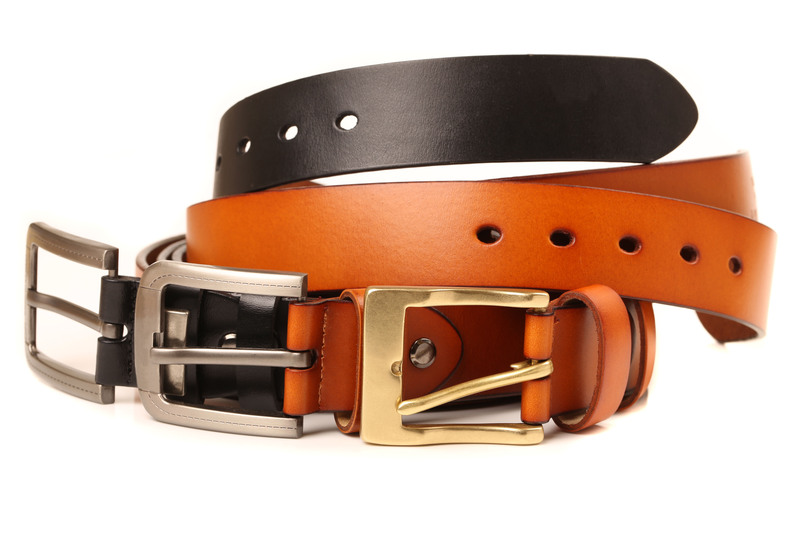Caring for Your Freezer During Unused Periods
Posted on 07/06/2025
Caring for Your Freezer During Unused Periods: The Complete Guide
Freezers play a vital role in modern households, preserving food and saving us money and time. But what happens when you need to leave your freezer unused for an extended period? Whether you're going on a long vacation, renting out your home, or simply have a backup appliance not currently in use, properly caring for your freezer during unused periods is crucial.
Neglecting your freezer when not in use can lead to mold growth, unpleasant odors, inefficiency, and even permanent damage. With this comprehensive article, we'll walk you through the dos and don'ts of freezer maintenance while unused, ensuring high performance and prolonged lifespan. Let's explore practical steps to care for your freezer during downtime.
Why Properly Caring for Your Standby Freezer Matters
A freezer is an expensive appliance. When neglected during idle periods, several issues can arise:
- Mold and mildew due to trapped moisture
- Bad odors from food remnants or bacteria growth
- Rust and corrosion developing on metallic parts
- Electrical issues from accumulated dust and moisture
- Reduced efficiency due to residual frost build-up
Adopting good freezer care practices during unused periods will minimize repairs, extend the appliance's life, and ensure it remains safe and ready when needed.

Step-by-Step Guide: How to Care for Your Unused Freezer
1. Decide: Should You Unplug Your Freezer?
One of the first questions is whether to leave the freezer plugged in or to disconnect it. Here's how to decide:
- If your freezer will remain unused for more than a month, unplug it.
- If the downtime is just a few days or weeks and you have food inside, keep it running but check it regularly.
- For backup or empty freezers not in daily use, it is best to unplug and prepare them for storage.
2. Remove All Food Items
Leaving food inside during extended periods is highly discouraged. Even with the freezer on, power outages or mechanical failure could result in spoiled food, bad smells, and contamination.
- Consume, store, or donate edible food.
- Dispose of expired, perishable, or questionable items properly.
- Do not leave anything inside--even unopened, "non-perishable" items attract pests and can cause odors.
3. Defrost Thoroughly
Frost build-up is a leading cause of rust, poor performance, and odors in unused freezers. Always defrost before storage:
- Turn off and unplug the unit.
- Remove all shelves, drawers, and trays.
- Allow frost to melt naturally (place towels to soak up water). Avoid sharp objects to chip away ice!
4. Clean and Sanitize
"A clean freezer stays fresh." After defrosting, it's time to clean thoroughly:
- Mix warm water with mild dish soap. Wipe all surfaces, inside and out. Don't forget the door seals and crevices.
- For stubborn spots or odors, use a solution of baking soda (2 tablespoons per quart of water).
- Rinse with clean water and dry fully with paper towels or a clean cloth.
- Leave the door or lid wide open for at least 24 hours to ensure no moisture remains.
5. Address the Drip Pan
Some freezers feature a drip pan that collects condensation. Left unattended, this can harbor mold or attract insects.
- Check your freezer's manual for pan location.
- Remove, empty, and clean the pan with soap and water.
6. Prop the Door Open
*Never* seal a freezer door shut for long-term storage. This vital step is often forgotten!
- Use a towel, block, or special door prop device to keep the door slightly open (1-2 inches).
- This prevents musty odors, mold, and interior condensation.
- Some manufacturers provide built-in clips for this purpose. If not, a small rolled-up towel works.
7. Choose the Right Storage Location
The location of your idle freezer matters. Consider the following:
- Dry, well-ventilated areas are best to prevent rust and mildew.
- Avoid direct sunlight or intense heat sources.
- Basements or garages are fine as long as they remain dry year-round.
- Elevate the freezer slightly off the floor if possible to keep away from moisture. (Bricks or rubber mats work well.)
8. Cover Your Freezer, But Let It Breathe
A dust cover helps keep your freezer clean but don't use an airtight or plastic wrap that could trap moisture.
- Use a breathable cloth cover or light cotton sheet.
- Avoid plastic tarps or bags which lead to condensation and mold.
Special Considerations for Energy Efficiency and Safety
Freezer Power Consumption While Idle
If you choose to leave your freezer plugged in (because you plan to use it soon or to avoid disrupting cold storage), keep in mind:
- Empty freezers waste energy. Basket-style and upright freezers perform less efficiently when empty. Consider placing sealed jugs of water inside (to stabilize temperature, reduce cycling, and save energy).
- Monitor the unit for unusual noises, leaks, or frost build-up.
Preventing Pests and Rodents
Unused appliances, especially in garages or sheds, can attract pests. To prevent entry:
- Seal all food tightly or remove it completely.
- Check gaskets and vent holes for openings.
- Consider laying a perimeter of natural repellents like cedar chips or peppermint oil.
Long-Term Vs. Short-Term Unused Freezer Maintenance
Not all idle periods are the same. Here's a quick distinction:
- Short-Term (under 2-3 weeks): Keep running, but inspect regularly. Avoid overfilling but don't leave completely empty either.
- Long-Term (months): Completely empty, unplug, clean, dry, and prop open.
Tips for Restarting Your Freezer After Long Downtime
- Inspect for external rust or dust (wipe down if necessary).
- Remove the cover and make sure nothing is blocking vents or fan.
- Close the door and plug in.
- Give it at least 4-6 hours (ideally overnight) to reach stable freezing temperature before adding food.
- Check that seals are working (should be tight and flexible; replace if cracked).
- Sniff for any lingering odors--repeat cleaning with baking soda solution if needed.
Extra Tips to Maximize Freezer Longevity During Idle Times
- Apply a thin layer of petroleum jelly on gaskets to keep seals supple.
- Sprinkle baking soda or place a moisture absorber inside (with door propped) for long-term freshness.
- Avoid storing your freezer in extremely humid or damp locations.
- Don't ever place heavy items on top; it could damage the lid or hinges over time.
- If rodents are a concern, use wire mesh on vents or base to block access.
- Check your freezer periodically even when unused--catch issues early and prevent surprises.
Common Mistakes to Avoid When Caring for an Unused Freezer
- Leaving the door/lid tightly closed--this encourages mold and odors.
- Forgetting to clean the unreachable parts (gaskets, vents, drip pan).
- Ignoring signs of pests or leaks--both can cause serious problems over time.
- Using harsh chemicals that can degrade the lining or seals.
- Neglecting to dry fully after washing.

Frequently Asked Questions About Idle Freezer Care
Can I leave my freezer unplugged for months?
Yes, as long as it is emptied, cleaned, dried, and the door is propped open. This is the best practice for long-term unused freezer maintenance.
Should I run my empty freezer to keep it fresh?
Not necessary--you waste electricity and eventually risk mechanical issues. Proper cleaning and propping the door open works better.
How do I remove a musty smell after storage?
Wipe all surfaces with a baking soda solution, leave the door open, and place an open box of baking soda inside for several days before reuse.
Can moisture in a standby freezer cause damage?
Absolutely. Even a small amount of trapped moisture can lead to mold, mildew, odors, and corrosion. Always ensure the freezer is 100% dry before closing it for storage.
Is it okay to use vacuum bags for covering?
No. Use a breathable fabric cover to allow air circulation and prevent condensation and mold growth.
Conclusion: Keep Your Freezer Ready for the Future
With a little effort and attention to detail, caring for your freezer during unused periods is straightforward and immensely beneficial. You'll prevent damage, avoid costly repairs, and be assured your appliance is ready to serve you when needed. We hope this SEO-friendly, comprehensive guide on idle freezer maintenance has equipped you with the essential knowledge to protect your freezer investment for the long run.
For more appliance care tips, energy-saving ideas, and guides for household maintenance, keep following our informative articles.
Latest Posts
The Art of Piano Moving: Why Expertise Matters More Than You Think
How to Prepare Your Freezer for Storage
House Moving Simplified: Say Goodbye to Stress



